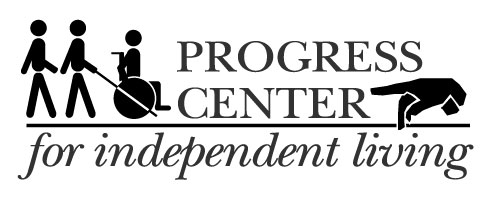Progress Center for Independent Living Statement in response to Governor Pritzker’s first Budget Address
(Forest Park, Illinois)– In his first budget address as Governor of Illinois, Governor Pritzker said, “….I would not balance a budget on the backs of the starving, the sick and the suffering, and I keep that promise today by beginning to rebuild health and human services.” Progress Center applauds Governor Pritzker’s intention to rebuild human services. For too long, while Illinois has been led by republicans and by democrats, the disability community has been forced to fight to maintain adequate funding and supports for community-based services. For too long, services that support the independence of people with disabilities have been subject to cuts and to misguided policy decisions. Progress Center is ready to move forward and work with an administration intent on strengthening programs that give people with disabilities the resources to pursue social, academic, and financial opportunities from their own home rather than nursing homes or other institutions.
In terms of community supports, the Home Services Program is vital. Through it, thousands of people with disabilities receive personal assistant services, who help out with day-to-day tasks that are key to independence. Under Governor Pritzker’s Department of Human Services Budget, the Home Services line is increased by $103 million, addressing “caseload growth,” and “underfunding” in fiscal year 2019.
Governor Pritzker spoke also of implementing a Fair Tax System in Illinois. Progress Center supports a Fair Tax. When implemented in Illinois, a Fair Tax could generate sustainable revenue for social services, allowing Illinois to sustain and build services, rather than putting valuable services under threat of cuts and elimination each year when the state is faced with budget deficits and gaps.
As the State of Illinois increases minimum wage, Progress Center urges Governor Pritzker, the administration, and all Illinois legislators to ensure that all workers with disabilities are included in the wage increase. Historically, under a section of the Fair Labor Standards Act, businesses have been able to pay some disabled workers sub minimum wage. This unfair practice segregates people with disabilities and prevents full inclusion and participation in their communities. Illinois needs to eliminate any opportunity for Illinois businesses to pay people with disabilities, and people from other communities, less than minimum wage.
In the context of Governor’s Pritzker’s budget, The Department of Human Services “provides a $31.3 million increase to support nearly 700 new placements for developmentally disabled individuals transitioning to less restrictive or community home settings under the Ligas consent decree.” Supporting the transition of people with disabilities from institutional settings to community-based settings is a principle core service of all Independent Living Centers, such as Progress Center, across Illinois. Progress Center hopes that Governor Pritzker, in addition to supporting the transition of people, take immediate steps to close the remaining State Operated Developmental Centers in Illinois, and maintain vigorous oversight and enforcement of what “community” means in Illinois. Without closing institutions, Illinois will continue to spend a disproportionate amount of funding on the segregated, warehousing of people with disabilities. Without vigorous oversight of groups that claim to provide “community” supports, people with disabilities are at risk of moving out of one segregated facility and into another, instead of moving into a genuine integrated, inclusive community.
Finally, the Fiscal Year 2020 Budget of Governor Pritzker also includes an increase in funding for Independent Living Centers. Progress Center is one of 22 centers in Illinois. As a network, Centers for Independent Living provide people with disabilities the opportunity learn from the experience of other disabled people, share their own experiences as disabled people, and pursue options that will equip them with the tools to be independent. As Progress Center, we are committed to our role in the effort to strengthen the disability community, strengthen the independent living network, and strengthen Illinois.
Progress Center provides services and conducts advocacy that supports the independence of people with disabilities. Progress Center serves Suburban Cook County. Progress Center is one of 22 Centers for Independent Living in Illinois. For more information, contact 708-209-1500.













